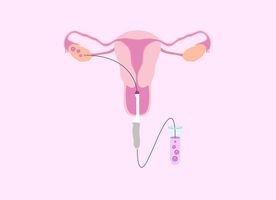Reproductive Medicine in Czech Republic
Search and Compare the Best Clinics and Doctors at the Lowest Prices for Reproductive Medicine in Czech Republic
Europe IVF - Prague





Reproductive Medicine at Europe IVF - Prague in Prague, Czech Republic
IVF CUBE





Reproductive Medicine at IVF CUBE in Prague, Czech Republic
Unica





Reproductive Medicine at Unica in Prague, Czech Republic
Repromeda



Reproductive Medicine at Repromeda in Prague, Czech Republic
Bulovka Hospital



Reproductive Medicine at Bulovka Hospital in Prague, Czech Republic
Gynem Fertility Clinic Prague - Medical Travel





Reproductive Medicine at Gynem Fertility Clinic Prague - Medical Travel in Prague, Czech Republic
IVF Centra Prof. Zecha - Pilsen





Reproductive Medicine at IVF Centra Prof. Zecha - Pilsen in Prague, Czech Republic
GynPorPraha



Reproductive Medicine at GynPorPraha in Prague, Czech Republic
My IVF Alternative - Europe




Reproductive Medicine at My IVF Alternative - Europe in Prague, Czech Republic
ROYAL MEDICAL – proven surgeons only





Reproductive Medicine at ROYAL MEDICAL – proven surgeons only in Prague, Czech Republic
AGEL a.s. - Nemocnice Prostějov


Reproductive Medicine at AGEL a.s. - Nemocnice Prostějov in Prague, Czech Republic
Fertimed


Reproductive Medicine at Fertimed in Prague, Czech Republic
Sanus sanatorium - First Private Surgery Center





Reproductive Medicine at Sanus sanatorium - First Private Surgery Center in Prague, Czech Republic
Our partner clinics in Czech Republic are accredited by the following associations








































































































































No Time?
Tell us what you're looking for and we'll reach out to the top clinics all at once
WHY US?








































































































































No Time?
Tell us what you're looking for and we'll reach out to the top clinics all at once





Reproductive medicine is a field of medicine that deals with the prevention, diagnosis, and management of male and female reproductive issues. It encompasses the prevention and assessment, as well as the treatment and prognosis of a wide variety of reproductive conditions. The main goal of reproductive medicine is to improve or maintain the female and male reproductive systems. Reproductive medicine specialists particularly treat and advise on any issues impacting a person’s or a couple’s ability to conceive. They treat issues of puberty, sexual education, family planning, birth control, infertility, sexual dysfunction, and reproductive system disease, such as:
- Infectious diseases, such as reproductive tract infections (RTIs) and sexually transmitted infections (STIs).
- Cancer that affects the reproductive system, such as breast cancer, ovarian cancer, penile cancer, and prostate cancer.
- Conditions that affect fertility, such as polycystic ovary syndrome (PCOS), endometriosis, fibroids, hypothyroidism, cryptorchidism, vasectomy, and retrograde ejaculation.
- Congenital abnormalities, such as imperforate hymen and epispadias.
- Endocrine disorders, such as teratoma, hypogonadism, idiopathic hirsutism, androgen insensitivity syndrome, ovarian cysts, and hypopituitarism.
Tests and treatments that reproductive medicine may perform include:
- Full medical history assessment
- Physical examination
- Blood tests
- Imaging techniques, such as pelvic ultrasounds
- Investigations of semen samples
- Ovulation induction
- Assisted reproductive technology (ART) such as in-vitro fertilization (IVF), fertility medication, artificial insemination (AI), embryo transfer, and frozen embryo replacement (FER)
- Open surgery
- Laparoscopic surgery
- Prescribing medication, such as antibiotics for bacterial infections or highly active antiretroviral therapy (HAART) for the HIV virus.
Reproductive medicine is a multidisciplinary branch of medicine that combines physiology, endocrinology, and anatomy, as well as some aspects of biochemistry and molecular biology. Reproductive medicine also overlaps with other branches of medicines, such as gynecology, urology, obstetrics, and psychiatry.
How Long Should I Stay in Czech Republic?
Your length of stay in Czech Republic depends on your specific condition and the type of test and/or treatment you underwent. In general, it is advisable that you stay in Czech Republic for at least 1-3 weeks, although you may be able to travel home within 1 to 2 days after some diagnostic tests. During your stay, you will attend follow-up appointments.
What's the Expected Recovery Time?
Your specific condition, the type of test/treatment you underwent, the technique your doctor used, and your overall health determines the recovery time. For open surgery, it may take around 4 to 6 weeks until you are allowed to resume your normal activity and to go back to work. Laparoscopic surgery offers shorter recovery time, usually only 3 to 4 weeks until you can return back to your normal activity level. For non-surgical procedures, such as IVF, you should be able to go back to your normal routine immediately after the procedure.
What Aftercare is Required?
You will be given detailed aftercare instructions that you will need to follow. In most cases, you will attend regular checkups with your reproductive medicine specialist in Czech Republic or with your local doctor back at home.
What's the Success Rate?
The advancement of reproductive medicine and a better understanding of the human reproductive system has lead to an increased safety and success rate of the reproductive system’s tests and treatments. The field has allowed the development of assisted reproductive technology (ART), resulting in advances in overcoming infertility. ART is also safer than surgical procedures, minimizing the risks that surgical procedures carry.
Are there Alternatives?
Depending on your specific case, you may be able to see a gynecologist, urologist, obstetrician, or even oncologist as the alternative to seeing a reproductive medicine specialist. It is best, however, to talk to your general physician first as they will be able to direct you to the right specialist.
This information has been accurately sourced and verified by a medical professional for its accuracy, however, we strongly recommend you to consult with your doctor before pursuing medical procedures overseas.











